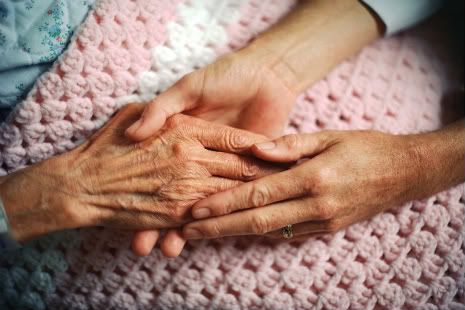Thirty years ago I was driving alone down the Pennsylvania Turnpike on a brisk December morning when I looked into the sky and saw a massive black sphere barreling down on my car. Several days later I was told that black sphere was the tire of a large truck driving the other way. The tire broke loose, bounced across the highway and crushed my car. I heard this news while I was in intensive care shortly after I discovered I was a quadriplegic and would spend the rest of my life in a wheelchair.
As you can imagine, the pain, both physically and emotionally, was unbearable -- especially in those early days. But the greatest pain I felt was the alienation that inevitably comes in the wake of trauma. I watched my fellow humans doing things I could never do again and wondered if I would ever be one of them. Making matters worse, most of my friends, family and doctors talked to me differently than they had just a couple of weeks earlier. I could hear the anxiety in their voice and feel the difference in our relationship. It was as though they felt I wasn't Dan anymore, I was someone different. And I wondered that also.
People came into my room and tried to make me feel better. They told me how fortunate I was that I had two children, that I could return to my career as a psychologist and there were people who loved me. All of this "support" made me feel worse and reinforced my belief that nobody would ever understand me again.
I wrote a column for the Philadelphia Inquirer for 15 years. My most popular column was entitled "Four words that could change the world." In it, I was confident that these four words could cut down on the incidence of divorce and even elevate the level discourse in international relations. And those four words?
Tell me your story.
Look someone in the eye and say those four words. Then listen quietly for as long as the other person wants to talk. Don't think about what you are going to say next when they are done, and don't react to whatever frustration, helplessness or discomfort you might be feeling as you are listening. Don't react to whatever value judgments you may or may not be having. Just listen to their story. And one other thing. Try to imagine living that person's life and having that story as yours.
You do that, and neither one of you will ever be the same again. It's called compassion, literally "feeling into" another persons experience. And we know that acts of compassion not only feel good, they release hormones in the brain that make us feel pleasure and generous of spirit.
After several weeks, a friend and colleague came to visit and when we were alone, she said, "Dan, tell me what it's really like?" I cried so hard I couldn't speak. This woman cared enough to sit with me and try to feel my life. Since that time, I tell people that when I am in a dark tunnel I want someone who loves me enough to sit there with me and not stand outside telling me how to get out.
Two months after my accident, I was back in the intensive care unit. During those early months I learned about more things I would have to live without, more illnesses I would endure, how I was at risk for bowel and bladder accident, pneumonia and skin breakdown. And on top of all that, I kept getting ill and going back into the hospital. I felt sick, crippled and of no value in this world.
So there I was in that that bed with a catheter, intravenous fluids and my head and neck immobilized so all I could do was stare at the ceiling. And my only wish was to go to sleep and never wake up when the nurse approached me. She knew I was a psychologist and asked if we could talk when her shift was over. Of course I said yes.
Later that evening she pulled up a chair and began to tell her story of loss and despair. She was feeling depressed, hopeless and very alone. And, like me, she didn't know if she could go on like this.
She was in so much pain, she didn't care about my spinal cord injury or even my despair, she just cared about whether I could help her. And for the first time since my accident, I didn't care about my problems, I just cared about whether I could help her. And because I understood so deeply what she was experiencing, I was able to listen to her with great compassion and understanding.
At the end of our meeting, she was crying with gratitude as I referred her to a therapist. And I felt very tenderhearted, grateful for her trust. I slept that night for the first time knowing that my life still had value.
That act of listening may have saved both of us.


SaturnsLady




Beautiful! Thank you for sharing this with us <3
ReplyDelete